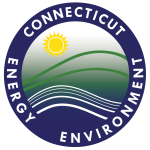The Connecticut Bottle Bill
UPDATE: Effective April 1, 2020, DEEP is extending the period of temporarily suspended enforcement actions through April 30, 2020.
PRESS RELEASE: Effective March 17, 2020, the Connecticut Department of Energy & Environmental Protection (DEEP) temporarily suspended enforcement actions against Connecticut retailers for failing to accept empty beverage containers for redemption under the law known as the “bottle bill.” During this time, if stores do not accept empty beverage containers, DEEP will not issue them a notice of violation.
Effective immediately, all New Manufacturer Exemption Applications shall be submitted for review by email to Edith Pestana of the Environmental Justice Program at edith.pestana@ct.gov.Connecticut is one of 11 states in the U.S. that are "bottle bill" states. Bottle bills, also known as container redemption programs, may have slightly different provisions in each state, but essentially they work by charging a small deposit on a container at the time of purchase which is then returned to the consumer when the empty bottle is returned.
Below please find more resources and information about the Connecticut bottle bill and container redemption programs in general.
| General Information | |
|
(FAQ's) about the Connecticut Bottle Bill and its recent changes
|
Beverage Container Redemption Center Registration Form
Effective immediately, all Redemption Center Registration Forms shall be submitted for review by email to Edith Pestana of the Environmental Justice Program at edith.pestana@ct.gov. |
| Connecticut Regulations for Bottle Bill Deposit and Redemption | Summary of Connecticut Bottle Bill Legislation |
| Manufacturer's Information | |
|
The Department is no longer accepting Exemption Applications
for 2020. The only exception is for a new manufacturer who started
bottling/selling noncarbonated beverages after November 1, 2019. In this case,
the ENTIRE form, listed below, must be completed in order for the form to be
processed and the exemption to be approved.
2020 Exemption Application for New Manufacturers Word, PDF Effective immediately, all New Maufacturer Exemption Applications shall be submitted for review by email to Edith Pestana of the Environmental Justice Program at edith.pestana@ct.gov. |
|
Container Redemption Resources
NEW! Bottle Bill Redemption Rate:
Bottle Bill Resource Guide by the Container Recycling Institute
"Drink and Deposit" by Jennifer Gitlitz, Waste Management World, < 2005="" sept-oct="">
The Container Recycling Institute, studies and promotes policies and programs that increase recovery and recycling of beverage containers and shift the social and environmental costs associated with manufacturing, recycling, and disposal of container and packaging waste from government and taxpayers to producers and consumers.
Explaining the Bottle Bill by Earth911
Bottle Bill Myths and Facts - the Container Recycling Institute
National Beverage Deposits by the Grassroots Recycling Network
Beverage Container Resources
Good Stuff? - Beverages by WorldWatch
Life Cycle Assessment of Drinking Water Delivery Systems: Bottled Water, Tap Water and Home/Office Delivery Water a study by the Oregon Department of Environmental Quality that shows that tap water is a far better environmental choice than recycling single-use bottles.
Makers of Reverse Vending Machines
Environmental Products Corporation (ENVIPCO)
For More Information
For general questions, complaints regarding non-compliance, or for information concerning redemption center registration, please contact Edith Pestana at 860-424-3044.
Disclaimer: The Connecticut Department of Energy and Environmental Protection (DEEP) maintains the content on this web site to enhance public access to information and facilitate understanding of waste reduction, reuse and recycling. The department is not recommending these resources over any others and recognizes these represent only a partial listing of resources on this subject.
Content Last Updated March 2020

